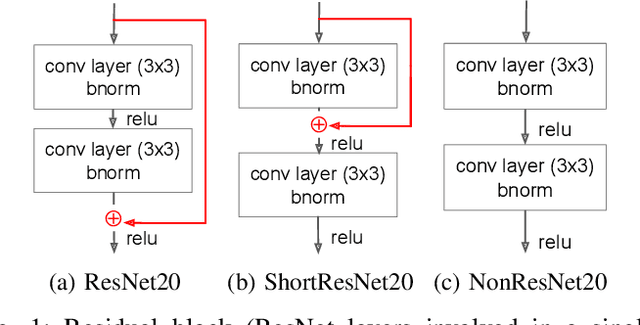Hardware-efficient Residual Networks for FPGAs
Paper and Code
Feb 02, 2021


Residual networks (ResNets) employ skip connections in their networks -- reusing activations from previous layers -- to improve training convergence, but these skip connections create challenges for hardware implementations of ResNets. The hardware must either wait for skip connections to be processed before processing more incoming data or buffer them elsewhere. Without skip connections, ResNets would be more hardware-efficient. Thus, we present the teacher-student learning method to gradually prune away all of a ResNet's skip connections, constructing a network we call NonResNet. We show that when implemented for FPGAs, NonResNet decreases ResNet's BRAM utilization by 9% and LUT utilization by 3% and increases throughput by 5%.
* Presented at DATE Friday Workshop on System-level Design Methods for
Deep Learning on Heterogeneous Architectures (SLOHA 2021) (arXiv:2102.00818)
 Add to Chrome
Add to Chrome Add to Firefox
Add to Firefox Add to Edge
Add to Edge